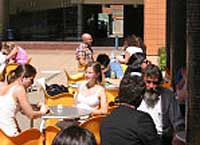|
||||||||||||||||||||||||||||||||||||||||||||
| Process Modelling and Analysis - CEIC3000 | ||||||||||||||||||||||||||||||||||||||||||||

Description The previous course name was Chem Eng Fundamentals 3.
System modelling, analysis and optimisation. This subject deals with the formulation of reliable mathematical models for the purpose of process design, control, and optimisation. Students will therefore be equipped with skills in the derivation of phenomenological models based on the application of conservation laws to various chemical and biological processes. Analytical tools for the solution of ODE’s, linear and nonlinear , representing initial value and boundary value problems. Treatment of PDS’s as well as integral transform techniques. Illustrative examples involving lumped and distributed processes, discrete systems as well as multivariable (matrix) methods. Attention will be also given to nonlinear features identification- steady state multiplicity and bifurcation analysis. For situations where closed form solutions are unattainable, approximate methods are sought. Thus, the subject will also cover numerical methods for algebraic, ODE’s and PDE’s. The use of numerical differentiation and interpolation in process analysis will also be examined. Finally we will consider process optimisation methods for unstrained and constrained mono- and multi-variable systems. Linear programming followed by elementary nonlinear programming principles are also presented. This course replaces CHEN3011, CHEN3012.
|
||||||||||||||||||||||||||||||||||||||||||||


